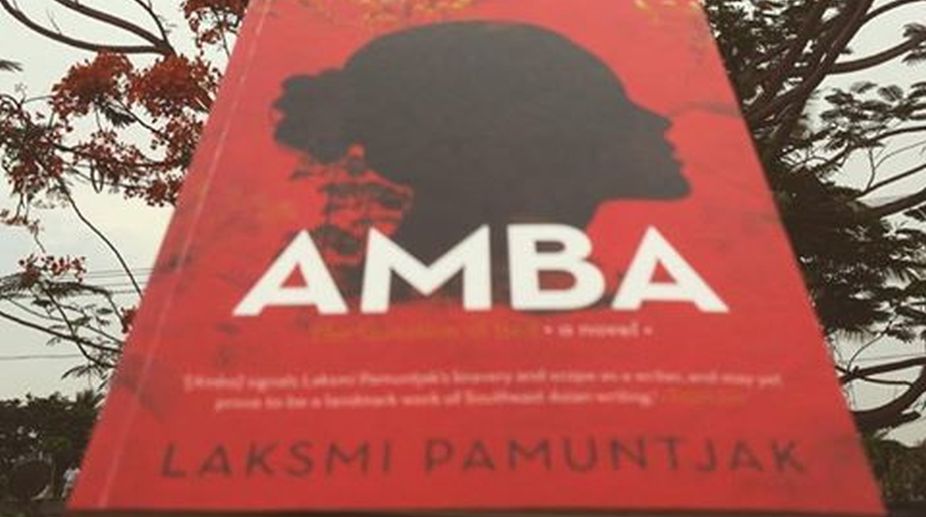Both Indonesia and India share the Mahabharataas a common text, but with differences. The Amba episode in India results in the creation of the first epic transgender Shikhandi whose task is to kill the man who ruined her life.
Bhisma remains the common target for revenge, but in the Indonesian text, Amba remains a woman and becomes Arjun’s wife Srikhandin. Which brings us to Lakshmi Pamuntjak’s debut novel. Here the characters take their names from the Mahabharataand the feminine Amba dithers between two men, Bhisma and Salwa.
A love triangle in the making it seems except that it is not quite that. Amba, a student, is engaged to Salwa, with her mother’s approval, but has an affair with a young doctor Bhisma who is a foreign-returned Communist sympathiser.
The affair lasts for a fortnight and then Bhisma disappears during a political demonstration. Forty years later, the widow of a German scholar, Amba receives a sudden email from Salwa.
He tells her that Bhisma died during the Communist purges along with 12,000 others. Amba then begins to delve into Bhisma’s life with the help of a young man named Samuel.
The narrative is interspersed with the letters that Bhisma wrote to Amba while interned in the prison camp — letters that never reached her.
She even sails to Buru to follow her quest for knowledge while the narrative goes back and forth in time.
Each section is a book and in book four, language is reduced to a single X — Bhisma’s life has been crossed out and that, the author implies, goes beyond anything that language could possibly describe.
Quite naturally there is a Dr Zhivago-kind of nostalgia permeating Pamuntjak’s work — though she lacks Pasternak’s power — this is a story of separation and a brief romance that ended in loss, the kind of thing that happened to many students with Communist sympathies in India and elsewhere. However, the tension of that core story loses its grip through the addition of characters like Samuel.
And at some point the story as an interpretation of the Mahabharata trails off, leaving only the names.
Amba is the spoilt daughter of rich parents who grows up in a provincial town and thinks she is striking a blow for feminism and Communism by being involved with a Zurich-returned young doctor in the middle of a political movement. Quite obviously, like all such brief, violent flings brought about by history and circumstance, it is doomed to go nowhere and tragedy is obviously on the cards.
What is important about Amba is its recording of an overlooked moment in Indonesian history —the violence that President Suharto unleashed on the Communists confining thousands in prison camps. It is a period that has very often been swept under the carpet.
The book is certainly about the question of red, the life and loves of young people and the death of their dreams of an ideal society.
Pamuntjak’s translation of her own work occasionally weakens her narrative with phrases that verge on the commonplace.
Amba would have survived without the names and been stronger with fewer characters, replaying a LaraZhivago tale of loss rather than evoking an epic story.
(The reviewer is a freelance contributor)











